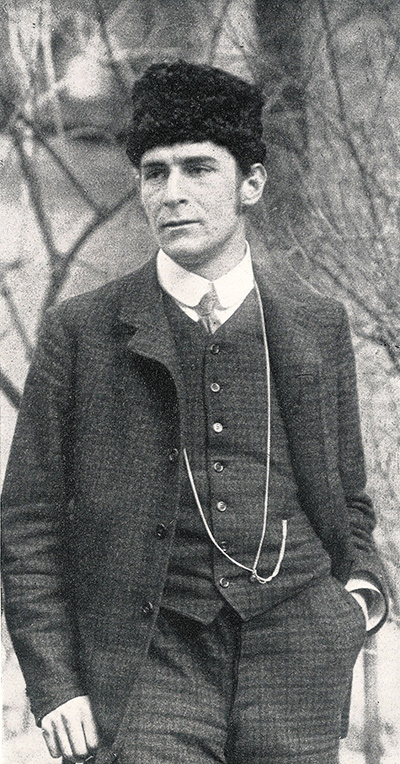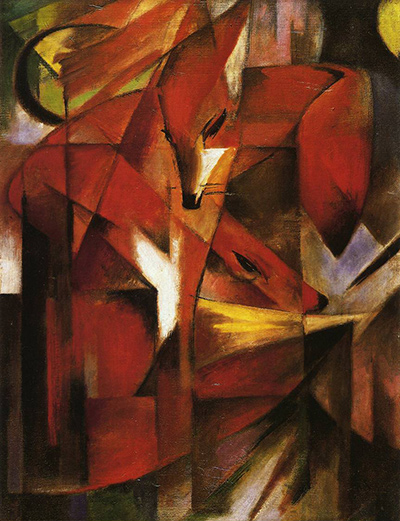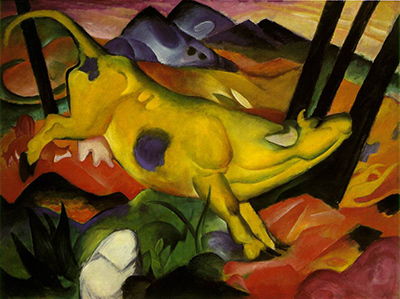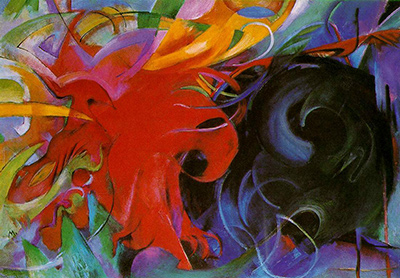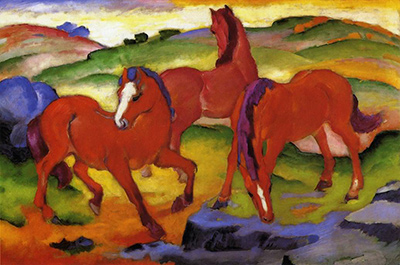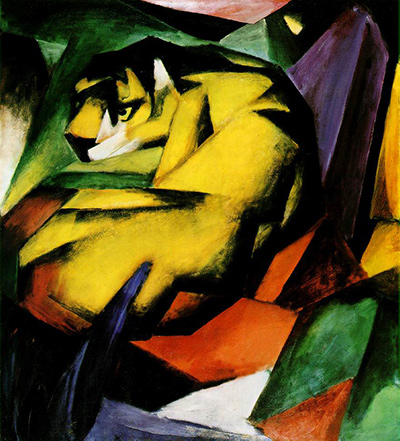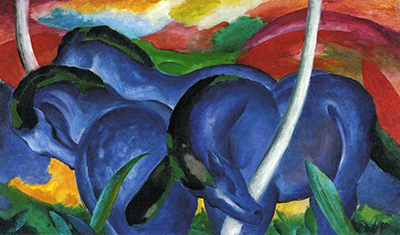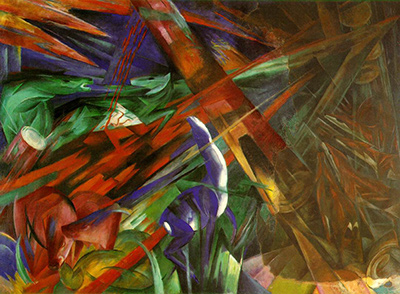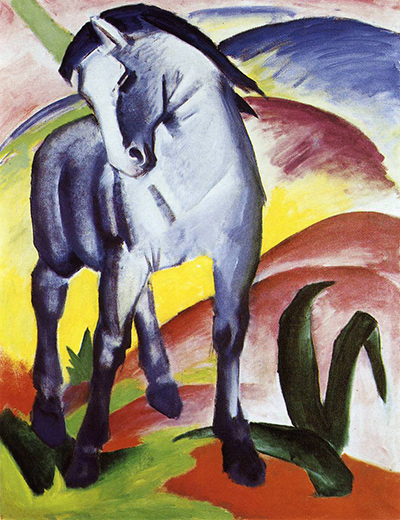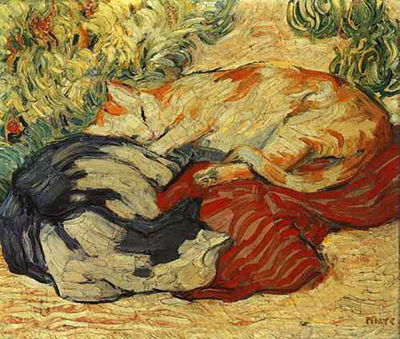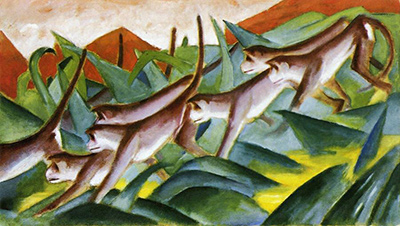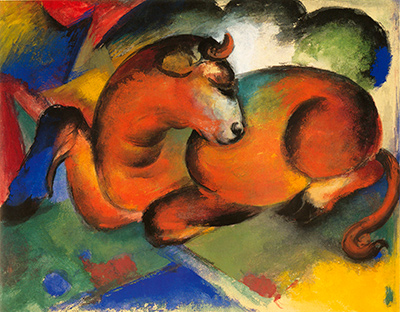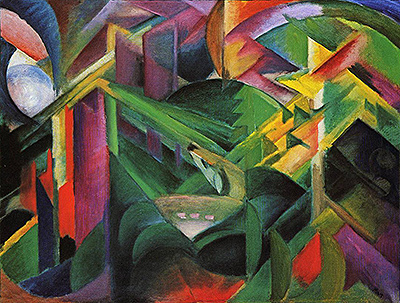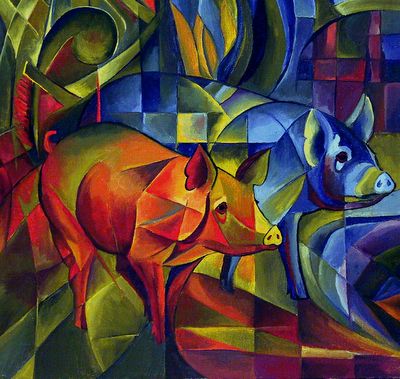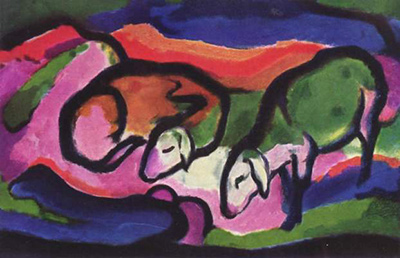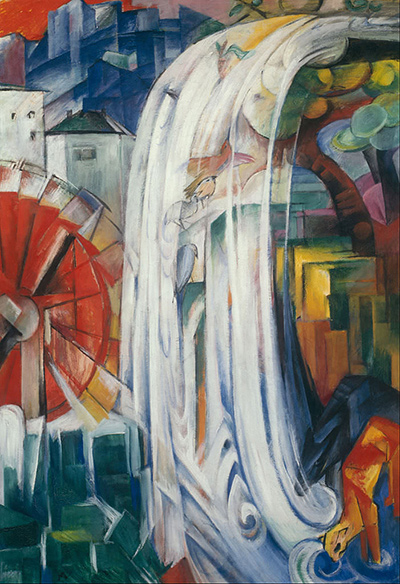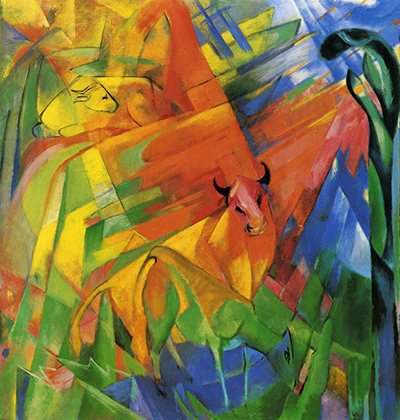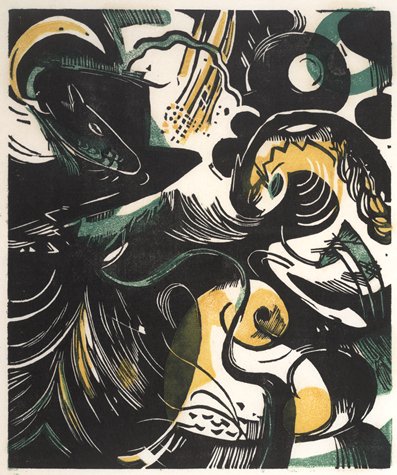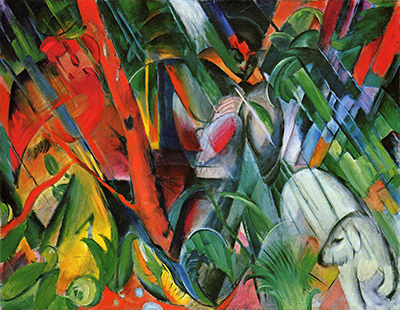Discover the finest artwork of German expressionist artist Franz Marc
The work of Franz Marc aimed to re-connect humanity with nature, at a time when western society was struggling with poverty and war.
The artist felt that focus had been lost on the important things in life, and his work would depict animals in a dreamy, expressive style.
Influences such as Fauvism, Cubism and Impressionism all impacted on the way in which Franz Marc created form. Colour was also highly significant, bright colours defining meaning to each of his paintings.
Franz Marc spent time analysing the use of colour within art history. He then formulated a method of colour for his own work. Blue tones would symbolise strength and masculinaty, yellows for the feminine sie and red with the physical and violent modern world.
As well as using art to promote a form of harmony which was missing from a western society in turmoil at that time, Franz Marc would also use his colour and form style to symbolise messages about where he felt things were heading.
Whilst society today is some way different, though still with some clear similarities, his artwork can still serve as a meditational influence on those who appreciate expressionist art. The colour schemes remain contemporary even today, and his work continues to draw in huge pockets of support from across the international art world.
Franz Marc founded the Der Blaue Reiter group, which concentrated on the use of abstracted forms and bold colors. He was joined here by several other highly significant artists including Wassily Kandinsky.
The contemporary approach of this group was to come in for criticism from more traditional art followers for several decades after they first pushed the boundaries of expressive art. Their paintings are now, however, seen as key to the development of several art movements around the early to mid 20th century.
There are few artists who have spent such a large proportion of their career depicting animals. Picasso's animal paintings are amongst the first that spring to mind, with his series of owls, cats and more.
George Stubbs was a respected British artist from several centuries previous. Stubbs created an accuracy of form which had not been seen much before, such as with his Whistlejacket horse portrait.



